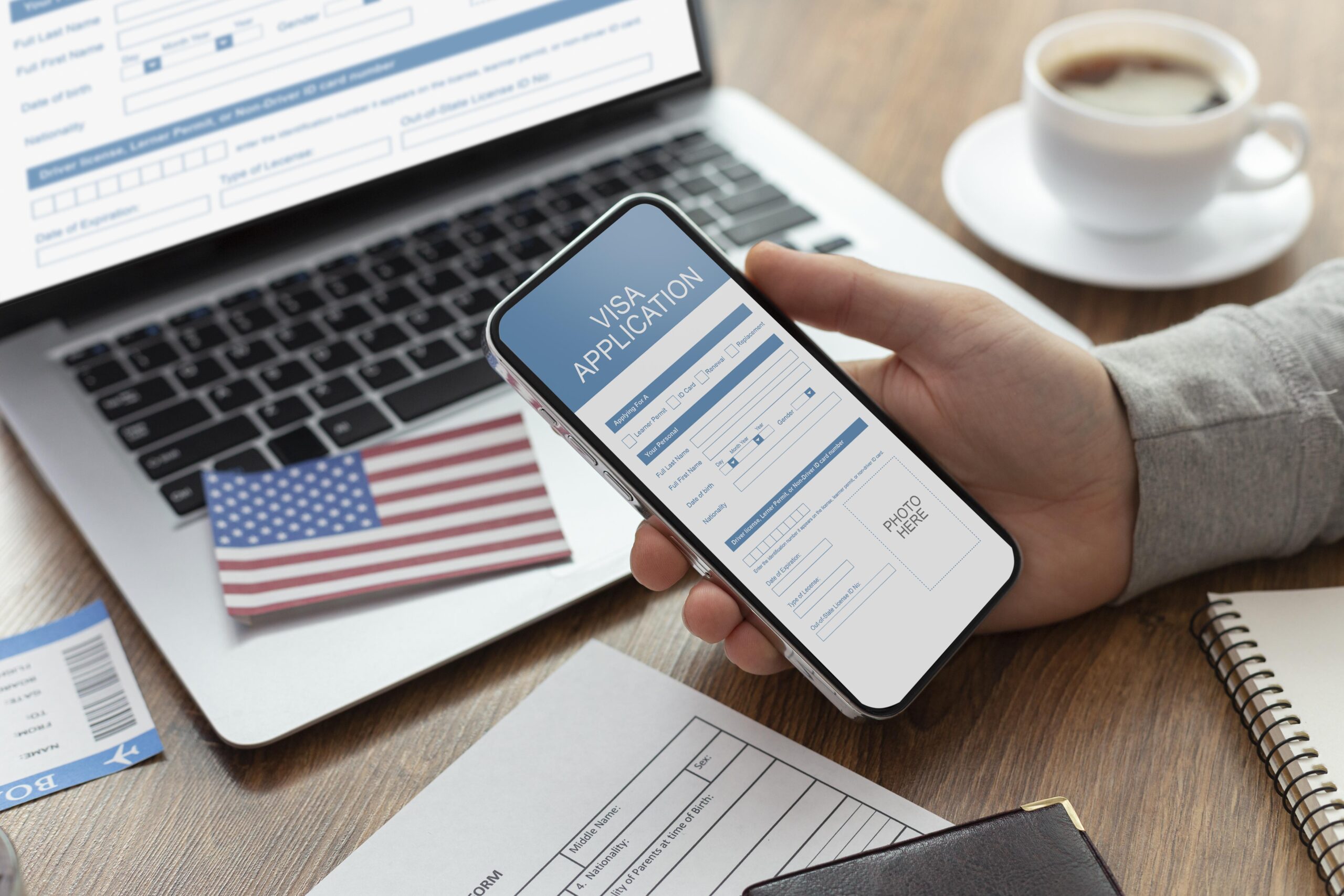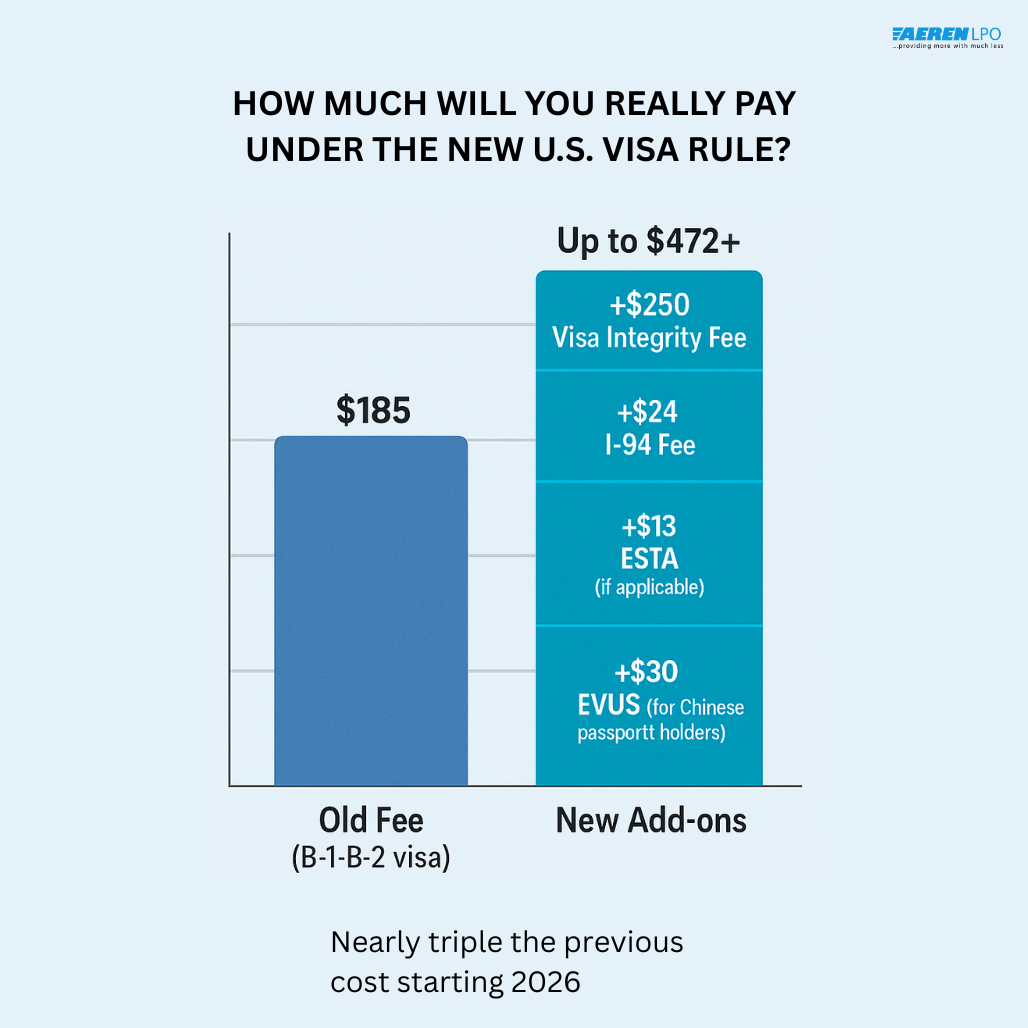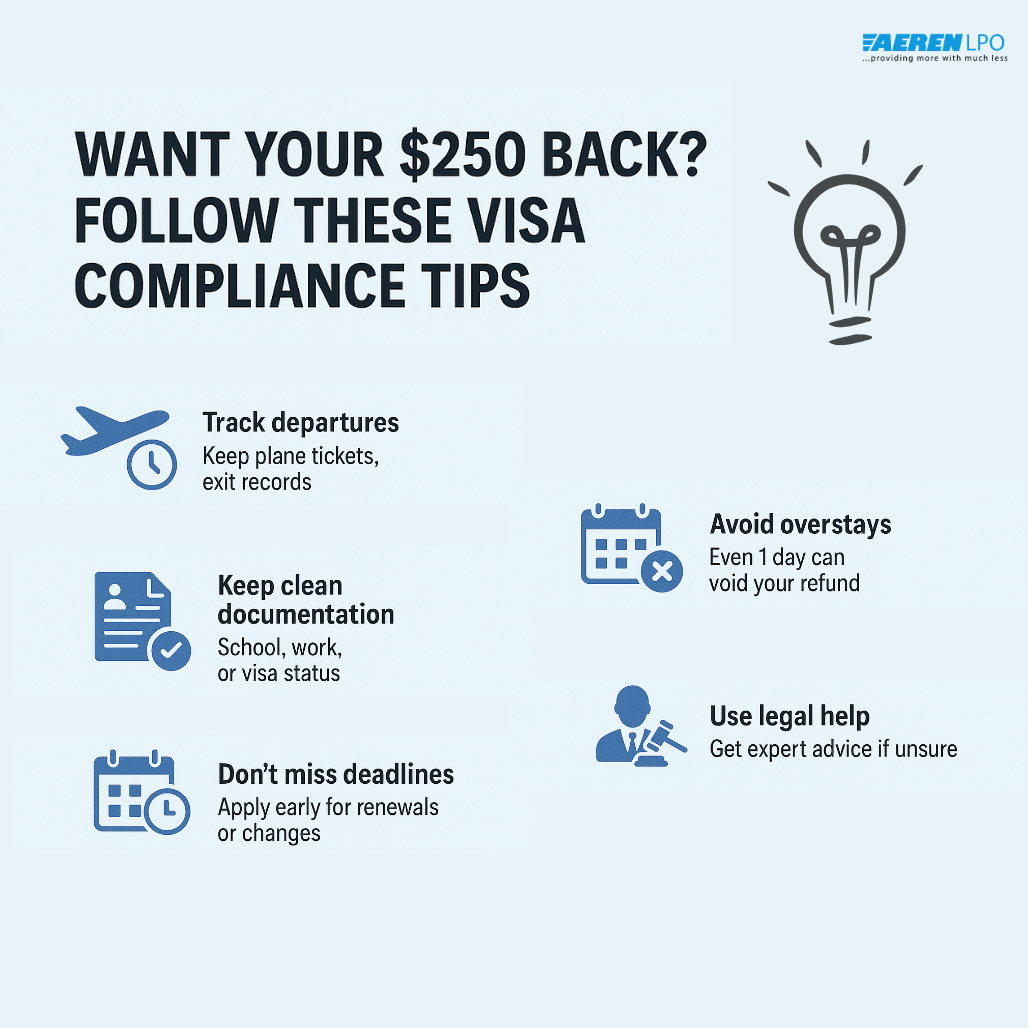
If you’re planning a trip, study stint, or work opportunity in the United States, there’s a new rule you need to be aware of, and it will affect your wallet. Starting in fiscal year 2026, the US visa rule is changing, and nearly all Nonimmigrant visa applicants will now have to pay a mandatory $250 Visa Integrity Fee. And no, it is not optional, waivable, or refundable unless you want to jump through hoops.
For anyone applying, this is big. It affects tourists, students, business travelers, workers, and even exchange visitors.
But what’s really behind this new fee? Why was it introduced? And how will it affect your travel or immigration plans? Let’s break it down.
Why This New US Visa Rule Matters
The Visa Integrity Fee is part of a broader law known as the “One Big Beautiful Bill Act,” which was signed into law on July 4, 2025. It’s a fresh take on U.S. immigration rules, and not everyone is thrilled.
Here’s what you need to know:
What is the Visa Integrity Fee?
It’s a $250 charge for most Nonimmigrant visa categories, including:
-
- B-1/B-2: Tourist & business
- F and M: Students
- H-1B: Specialty occupation workers
- J: Exchange visitors
These are the most commonly used visa types by applicants from Australia, New Zealand, the United Kingdom, Europe, and other regions.
Who’s exempt?
Only people on diplomatic visas (such as A and G) are exempt from paying. Everyone else? No way out.
When does this start?
From fiscal year 2026. However, for some fees, such as the $24 I-94 and $13 ESTA charges, increases will occur even sooner.
How Much More Will You Pay?

So, if you’re applying for a B-1/B-2 visa (business or tourist):
- Current fee: $185
- Add Visa Integrity Fee: +$250
- Add I-94 fee: +$24
- Add ESTA fee (if applicable): +$13
Total: $472
In addition to that, Chinese passport holders with a 10-year B visa must also pay an additional $30 EVUS fee.
👉 So yes, the cost has nearly tripled. This represents a significant shift in America’s new visa rules, and it’s not just about finances; it’s about stricter control and compliance.
Also read: Nonimmigrant US Visa 2025 : What Changed and How Aeren LPO Gets You Through
What’s the Real Purpose Behind the Rule?
On paper, the U.S. is about immigration enforcement and visa compliance. In reality, it is about accountability and revenue.
Here is the rationale:
- If you complied with your visa conditions and left as required, you may be eligible for a refund.
- But that refund isn’t automatic. You’ll need to prove lawful compliance, such as presenting travel records or documentation that confirms you have adjusted your status legally.
- Miss a detail? No refund.
The U.S. aims to incentivize good behavior while collecting additional funds from all individuals entering the country under a Nonimmigrant visa. Whether you’re a student from Singapore, a tech professional from India, or a backpacker from New Zealand, the message is clear: comply or pay.
Will This Impact You If You’re Already in the U.S.?
Short answer: Yes, if you apply for a visa extension or change of status after the new law takes effect.
Even if you’re already in the U.S., any new visa issuance, including extensions or transitions to another visa category, will trigger the fee.
Also, since the fee will be adjusted annually for inflation, it could go up every year. What’s $250 now could be $280 in 2027 and more in 2028.
What Does It Mean for Students, Tourists, and Workers?
This US visa rule is a big deal if:
- You’re planning to study in the U.S. (F-1 or M-1 visas)
- You’re visiting for a short-term business or tourism trip
- You’re hired on an H-1B or another skilled work visa
- You’re joining a university or company through a J-1 exchange
It also makes it more expensive for companies that sponsor foreign talent. That could lead to tighter selection and fewer opportunities for international workers.
For students, especially, the fee might seem like an added burden—but here’s a key tip: If you keep your documentation tight and exit the country on time after your course, there’s a shot at reimbursement. Just don’t assume it’ll happen automatically.
Tips to Stay Compliant and Avoid Losing Your $250
If you’re applying under the new rule, here’s how to protect your money and your visa:

Will More Fees Be Introduced Later?
Most likely, yes.
The law already stipulates that the Department of Homeland Security has the authority to adjust the fee annually. And if you read between the lines, there’s room for new travel-related surcharges too.
The bottom line is that if you plan to come to the U.S. anytime after 2026, allow for more than you need in your budget. They may keep increasing fees.
Final Thoughts: What You Should Do Now
The US visa rule isn’t just about extra charges; it’s a signal. The U.S. wants travelers and visa holders to follow the rules to the letter. So, whether you’re applying for a Nonimmigrant visa from Canada, getting your student visa from Singapore, or setting up a business trip from Australia, these are your takeaways:
- Understand the new fee structure; it’s not a one-time thing.
- Stay compliant to have any chance of a refund.
- Expect ballooning visa processing costs in the years to come.
- If in doubt, get help. Better to do it right the first time.
This change is part of a larger trend in USA immigration rules: tighter scrutiny, higher costs, and more pressure on applicants to comply. The more you prepare, the smoother your journey.
Need Help Navigating the New Visa Changes?
At Aeren LPO, we support global clients with visa documentation, compliance review, and advisory services. If you’re planning to apply under the new US visa rule, we can help you stay compliant, reduce risk, and understand your options with our US Immigration Services.
Whether you’re an individual traveler or a business sponsor, reach out for expert support tailored to the latest America’s new visa rules.

